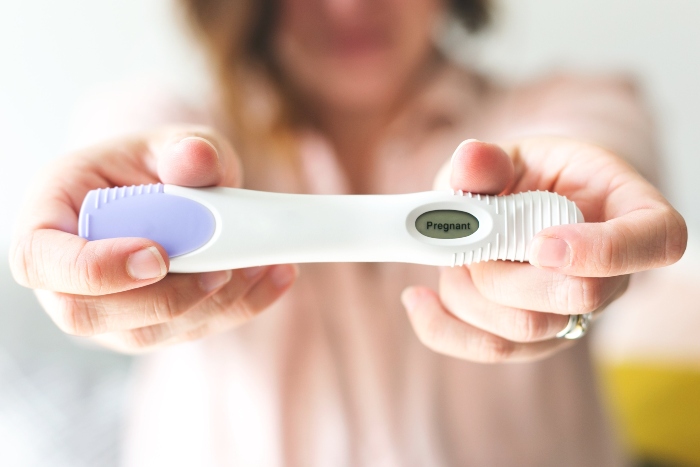When to Take a Pregnancy Test to Get an Accurate Result?
Express pregnancy tests are a simple and fast way to detect early pregnancy. Let’s find out how to get an accurate result!

How does a pregnancy test work?
A pregnancy test detects human chorionic gonadotropin in a woman’s urine. This is a hormone produced in the body of a pregnant woman.
This hormone is produced by the membrane of the ovum when a fertilized egg attaches to the wall of the uterus. Normally it happens in seven days.
Did you know that digital pregnancy tests are more accurate?
When is the best time to take a pregnancy test?
A blood test can also detect pregnancy. It could show an accurate result on the 8-10th day after fertilization. A pharmacy test is different. It’s recommended to take it no earlier than the first day when your period is late or about 2 weeks after conception.
To be absolutely sure it’s better to take another pregnancy test a week after your cycle is late.
Can a pharmacy pregnancy test be wrong?
It’s possible, although such cases are rare. A chorionic gonadotropin test is a pretty accurate way of detecting pregnancy, and an error normally occurs if it’s not used properly. Also, depending on the location of the fertilized egg, in some cases, the result might not be informative enough.
The likelihood of a wrong result two weeks after conception is very low. In spite of this, there are also cases when the test shows pregnancy that’s not visible by ultrasound, according to gynecologists.
This is possible in the case of short-term uterine pregnancy regardless of the fetus developing or not, as well as ectopic pregnancy. In such cases, your gynecologist will take a blood test to get more accurate results.
Wherein it might not show ectopic pregnancy. To detect it, one should use ultrasound and study the dynamics of the chorionic gonadotropin levels in the blood or even diagnostic laparoscopy.
Why is the second line not as visible?

There can be a lot of reasons the second line of the pregnancy test is not showing well. For example, low levels of chorionic gonadotropin, because the test is taken too early or was of poor quality, had an expired date, or was used incorrectly.
Other reasons include health issues, early miscarriage, recent abortion, or taking medication to stimulate fertility.
If you take another test in 2-3 days and the result is the same, the reason could be insufficient hormone production, miscarriage, or ectopic pregnancy, or its abnormal development. In this case, a medical ultrasound could help to find out the reason.
